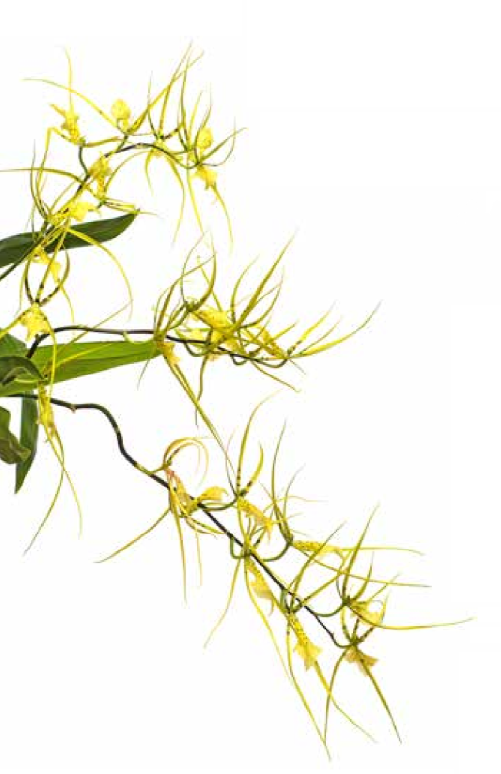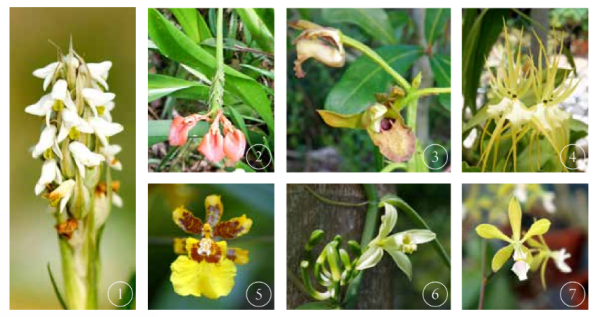Orchid Brief: Etymologies of Orchid Names

Have you ever wondered how the names of orchid flowers originated? From “Drawings of Florida Orchids” come the etymologies of some of our orchids.

Shop Orchids in the Fairchild Plant Store
Bletia: Don Luis Blet, Spanish herbalist and apothecary of the 18th century
Brassia: William Brass, botanist of the 18th century who collected in West Africa and was a friend of Robert Brown (Scottish botanist who described the cell nucleus)
Calapogon: from Greek kalos for beautiful and pogon for beard, allusion to bearded lip
Campylocentrum: Greek kampylos, crooked, and kentron, spur, the shape of the spur
Cranichis: kranos, helmet, referring to the helmet-like, concave lip
Cyrtopodium: Greek kyrtos, for curved, and podion, diminutive of pous, or foot, allusion to the prominently curved foot of the column
Epidendron: upon tree
Erythrodes: erythros, Greek for red, and edios for appearing
Eulophia: Greek eulophos, beautifully crested, referring to lip
Goodyera: to honor John Goodyer, (1592-1664), English botanist who translated into English “De materia medica” by Dioscorides
Habenaria: from Latin habena for thong or rein, allusion to spur or slender elongated lip of some species
Inoposis: Greek ion, for violet, and opsis, for resemblance
Liparis: from Greek liparos for fat or shining, referring to glossy leaves
Listera: dedicated to Martin Lister, English naturalist (1638-1711)
Maxillaris: from Latin maxilla for jaw, referring to resemblance of column and lip to jaws of an insect
Oncidium: a diminutive of the Greek onkos for swelling, warty excrescences of the lip
Pleurothallis: Greek pleura for rib and thallos, branch, re: short, persistent pedicels along the rachis
Polyrrhiza: from Greek polys, or many, and rhiza, root
Ponthieva: honors Henri de Ponthieu, collector in the Caribbean area who sent plants to Sir Joseph Banks in 1778
Spiranthes: from Greek speria for coil and anthos for flower, the spiral arrangement of flowers
Vanilla: from Spanish vanilla, diminutive of vaina or pod
Zuexine: from Greek zeukis, for joining, in allusion to partial union of the lip and column

